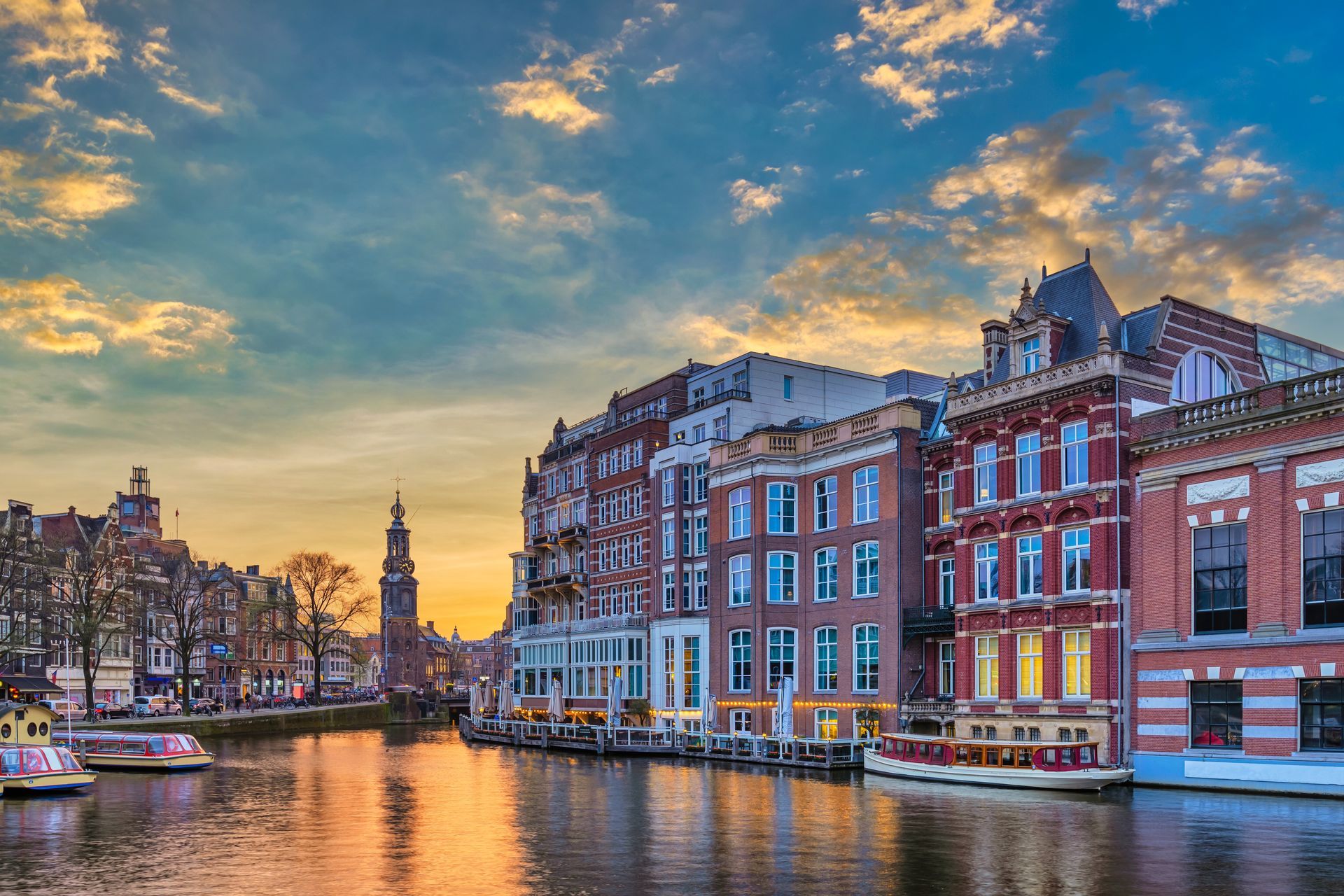When I found myself in Amsterdam, at least twice a month, back in the days of pre-pandemic frequent travel, a saviour of my sanity was without a doubt Airbnb. More space, less formality, the chance to really know a city and cook your own food; made being away from home that little bit better. Their brand differentiator ‘belong anywhere’ was writ large in the end-to-end experience.
With shares dipping significantly this week and a disappointing outlook predicted thanks to a soft consumer market in the US, it really got me thinking about Airbnb’s stellar achievements, its ability to survive a global pandemic and what their truly epic brand differentiation might allow them to do next.
A little history
Airbnb, founded in 2008 by Brian Chesky, Joe Gebbia, and Nathan Blecharczyk, has grown from a small start-up into a global powerhouse and that’s a fact. Its inception was a masterclass in branding and differentiation, positioning itself uniquely in a saturated market. Airbnb's concept was revolutionary: an online marketplace for short-term lodging in private homes. The idea stemmed from the founders' personal experience of renting out an air mattress in their living room to make extra money. This simple, yet innovative idea tapped into the existing but underutilised inventory of spare rooms and entire homes, offering travellers a unique, local experience that hotels could not provide.
Branding strategy
From the outset, Airbnb’s brand emphasised community, belonging, and unique experiences. The positioning ‘belong anywhere’ encapsulated its mission to create a sense of home for travellers wherever they went.
Practically that meant:
- Building a focus on user generated content, capitalising on and moving beyond the successful model created by TripAdvisor - guest reviews and host profiles built trust and authenticity throughout the experience (when an estimated 91% of consumers trust online reviews as much as personal recommendations, it was a strategy grounded in success)
- Creating localised and personal experiences, which was driven by consumer demand in the emerging Instagram era – want to go to a little-known bar? A beach that’s undiscovered? Your host, knows better than the best-of-the-best concierges
- Community building – the creation of forums and digital events allowed consumers to begin the experience before they left home and continue way past the end of the holiday – extending good vibes and elongating loyalty

Dark clouds on the horizon
It’s rarely all plain sailing, even with the best strategy and positioning businesses need to occasionally pivot and let’s face it, COVID was the pivot to end all pivots (PIVVVVOOOOOTTTT – admit it, that Friends reference was in your head too!)
COVID dealt a severe blow to travel and hospitality and Airbnb was no exception. Global lockdowns, travel restrictions, and health concerns led to a drastic decline in bookings. In response, Airbnb had to lay off 25% of its workforce and halt non-core projects to conserve cash - brutal.
Despite these challenges they adapted quickly, they pivoted to local stays (with global travel restrictions), they rented to remote workers and encouraged long term lets in a better lockdown environment than your own – brilliant! This was supported by enhanced cleaning protocols and a continued commitment to digital innovation and online experiences – everything changed, but nothing changed, when the brand differentiator ‘belong anywhere’ remained steadfast.
A new world
Now, in a post-pandemic world, market influences continue to be factored, they have to be. Our habits, our desires, our needs, have all been somewhat altered.
Work from home (or work from anywhere) policies are a dream for the brand – honestly, why are you looking at your spare bedroom wall, when you could be sitting on a riverbank or in a buzzing city? The consumer push towards greener more sustainable travel, is also a win, supporting eco-friendly hosts and shunning the approval of planning permission for a ‘mega-complex’.
Though green is good, there’s undeniably a backlash in ‘real’ communities, where tourism is becoming less popular with the locals.
Local homes, for local people
In the UK and other regions, there is growing backlash against Airbnb. Communities are concerned about the proliferation of short-term rentals transforming neighbourhoods into transient areas, leading to serious long-term issues:
- Housing Shortages - The conversion of long-term rental properties into short-term lets reduces the availability of housing for local residents, driving up rent and property prices highlighted by a study by the Economic Policy Institute
- Community Disruption - High turnover of guests can disrupt the social fabric of communities, with increased noise, litter, and security concerns – The Guardian even reporting on full social movements in local communities attempting to oust the renters
- Economic Displacement - Despite many towns and cities benefitting from the tourist pound, the truth is local businesses often suffer as tourists frequenting short-term rentals do not contribute as much to the local economy as long-term residents.
In response to these issues, many government organisations are imposing stricter regulations on short-term rentals, including caps on rental days in cities like Amsterdam and Barcelona, alongside increased licencing requirements and the imposition of a tax burden on the short term let.
Current Earnings Crisis in the USA
And clearly this kick back isn’t the only issue. The broader economic context, particularly the earnings crisis in the USA, is having an impact on the organisation. With many Americans facing stagnant wages and rising living costs, discretionary spending on travel may well continue to decline. This could very easily lead to decrease in bookings and a shift in travel patterns.
There’s also a question about the Airbnb model, could they begin to damage themselves with their own positioning? Could the economic strain in the US lead to more homeowners listing properties on Airbnb to generate additional income, increasing supply, and potentially driving down prices? Who knows…
Future Outlook
When your brand positioning is so unbelievably, spectacularly right and connected so deeply with human need, the answer is to forge on and keep the core.
To navigate the challenges, perhaps Airbnb should double down on ‘belong anywhere’ – diversifying the offering even further, expanding beyond short term rentals, into co-living spaces, working spaces or travel experiences? But this can only be achieved by working on and in local communities to address concerns and support the experience for permanent residents as well as those of us who are more nomadic.
One thing’s for sure, no matter the future for Airbnb, the next pivot, the next tax bill, or the next undiscovered beach or restaurant – their journey from a novel idea to a global brand is a testament to the power of brand differentiation.
A LITTLE MORE READING





